
Lizards Around Las Vegas, Wildlife Around Las Vegas
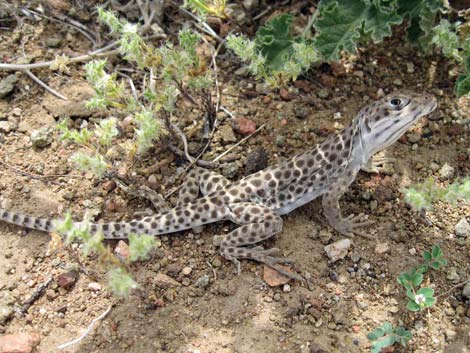 |
General Description: Long-nosed Leopard Lizards (Gambelia wislizenii) are large lizards with a large head, long tail, and dark leopard spots on the back and tail. Taxonomy: Collared and Leopard Lizard Family (Crotaphytidae). Technical Description: Body size large (total length to 15 in.). Head proportionally large. Tail long and round. Dorsal color cream or tan with large, dark spots (leopard spots). Chin with rows of gray stripes. Ventral color white. During the breeding season, females develop orange-red spots and bars on the body and tail. Females generally larger than males. |
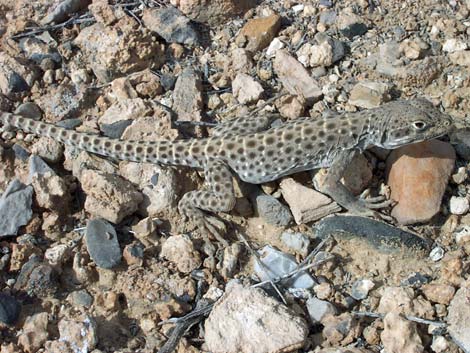 |
Diet: Omnivorous. Ambush predator. Feeds on insects, crickets, grasshoppers, small rodents, lizards, and vegetation (e.g., berries, small leaves, and flowers). Habitat: Primarily Mojave Desert Scrub and salt desert scrub; also found in blackbrush, sagebrush, and pinyon-juniper habitats (Lower Sonoran, Upper Sonoran, and Pinyon-Juniper life zones). Prefers hardpan, gravelly, or sandy open ground below 6,000 ft elevation where vegetation is sparse or in small clumps and it can run to hunt and escape predators. Range: This species is widely distributed throughout the western U.S. from Oregon to Texas southward into Mexico. This subspecies occurs throughout the entire range except for in the central valley of California. |
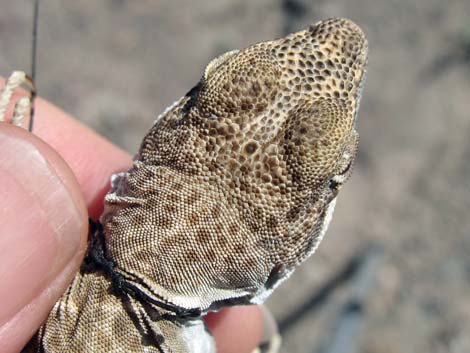 |
Breeding: One clutch of 1-11 eggs laid in early summer. Similar Species: No other species in southern Nevada has leopard spots. Comments: These lizards are fast and can run on their hind legs to capture prey or escape predators. If you try to catch one, expect to get bit. And if you get bit, expect it to hurt and leave a mark. Of course, a Leopard Lizard on your finger is an easy lizard to photograph. |
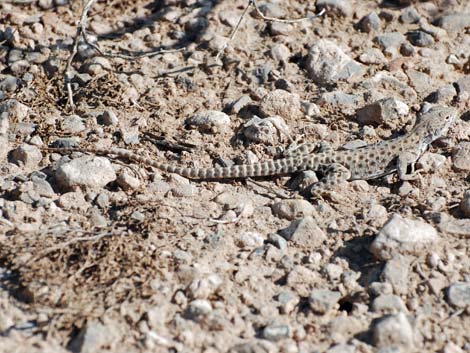 Long-nosed Leopard Lizard |
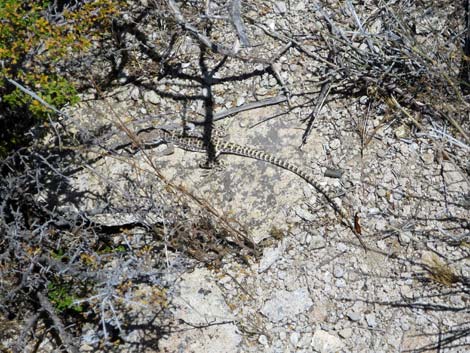 Long-nosed Leopard Lizard blending into the background |
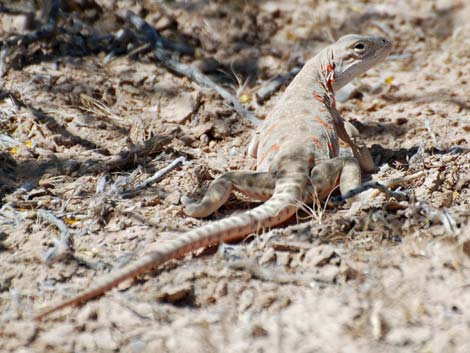 Long-nosed Leopard Lizard female in breeding colors |
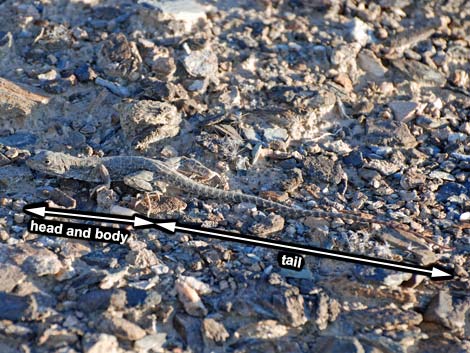 Leopard Lizards have very long tails |
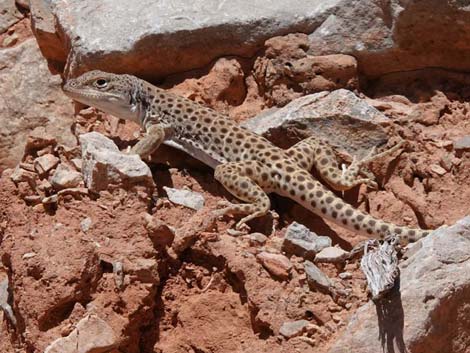 |
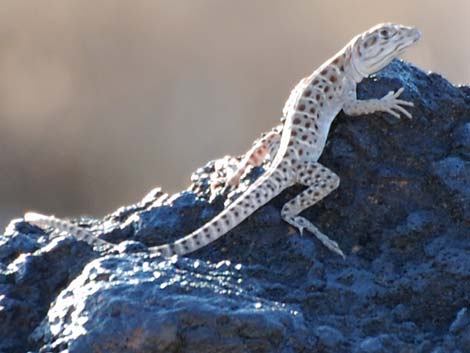 |
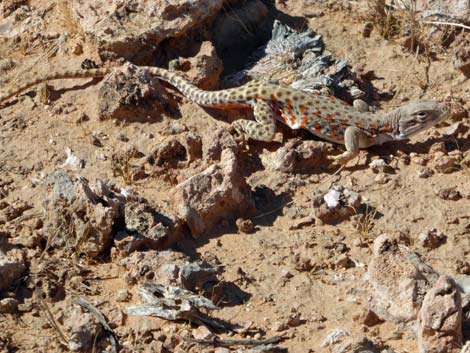 Female Leopard Lizard in breeding colors |
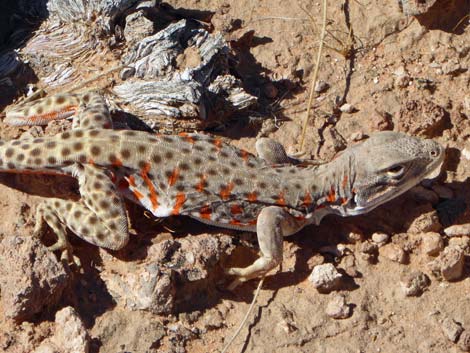 Female Leopard Lizard in breeding colors |
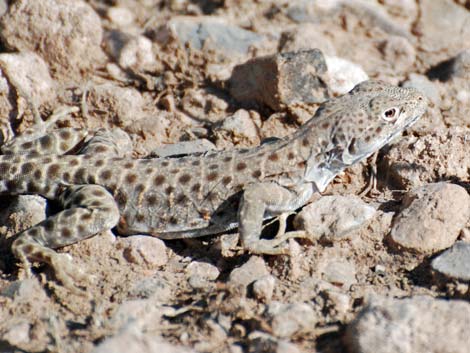 Leopard Lizard |
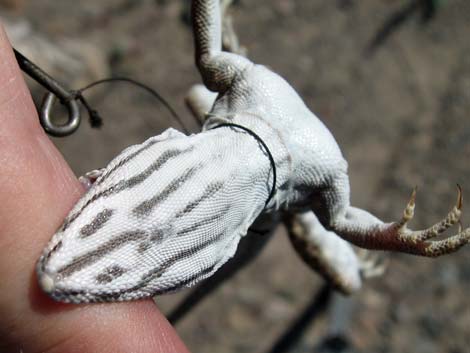 Leopard Lizard doing that they do best: biting very hard |
Note: All distances, elevations, and other facts are approximate.
![]() ; Last updated 210713
; Last updated 210713
| Lizards Around Las Vegas | Wildlife Around Las Vegas | Glossary | Copyright, Conditions, Disclaimer | Home |